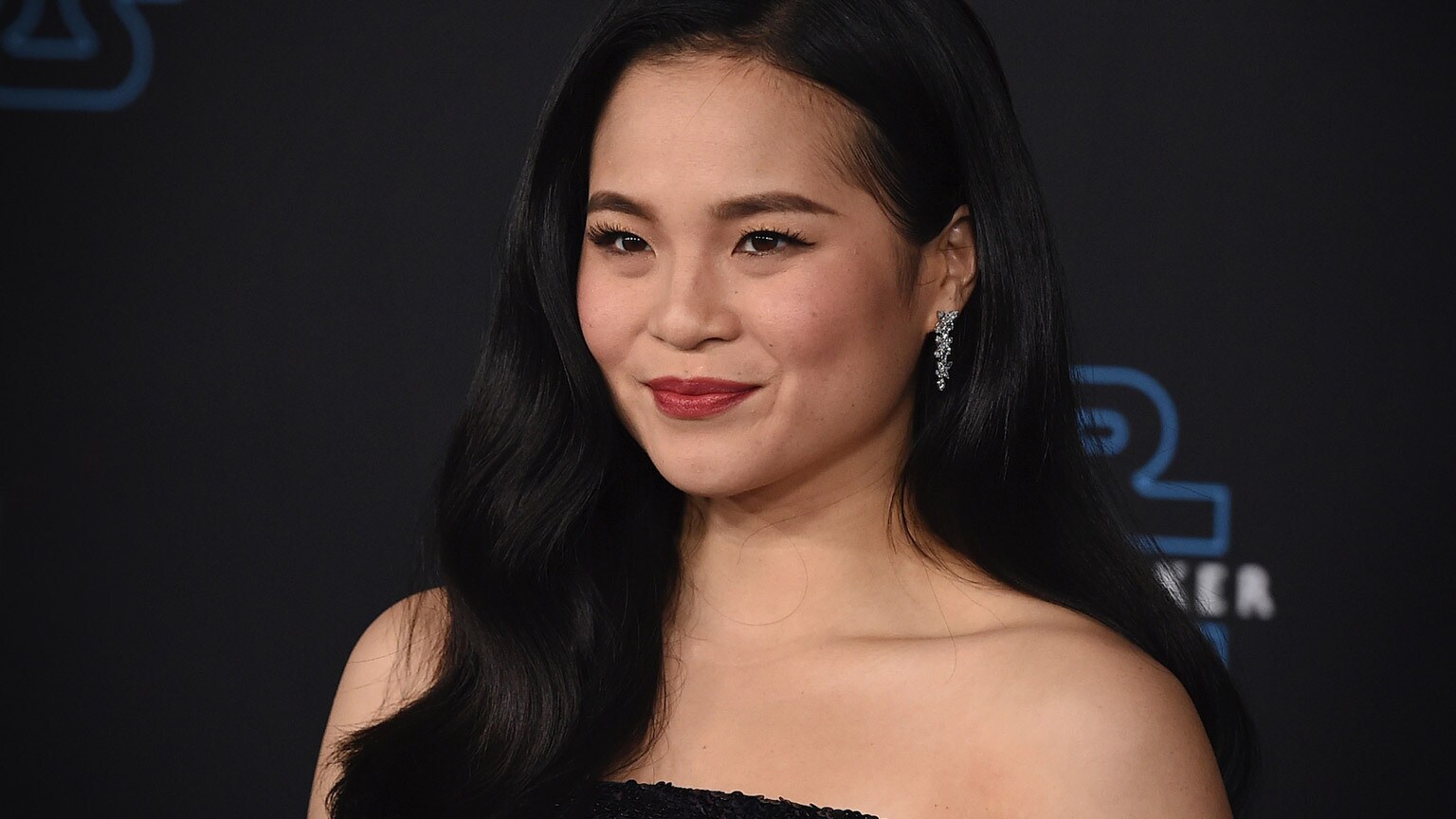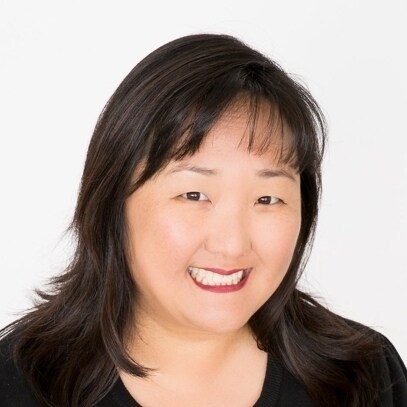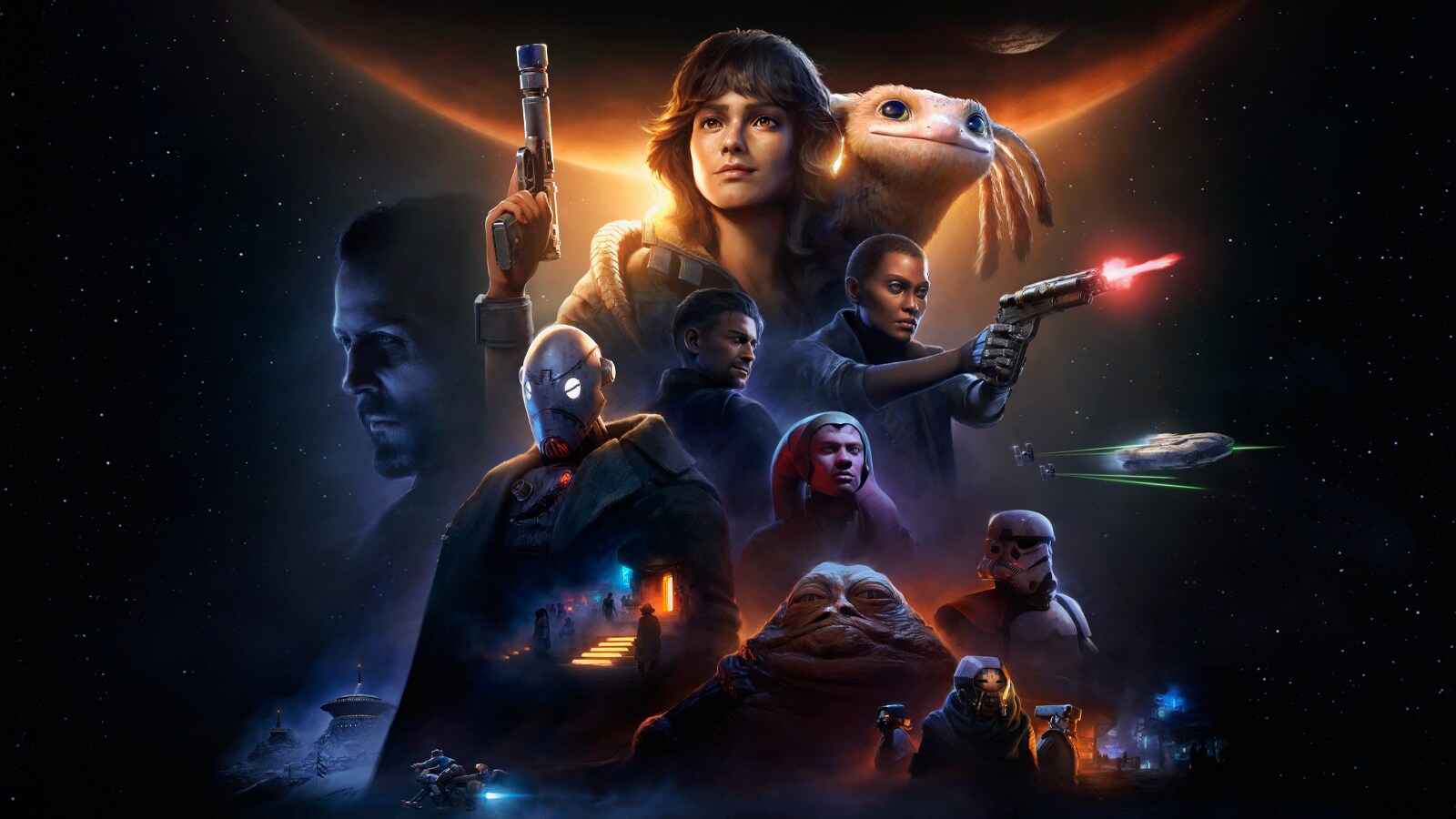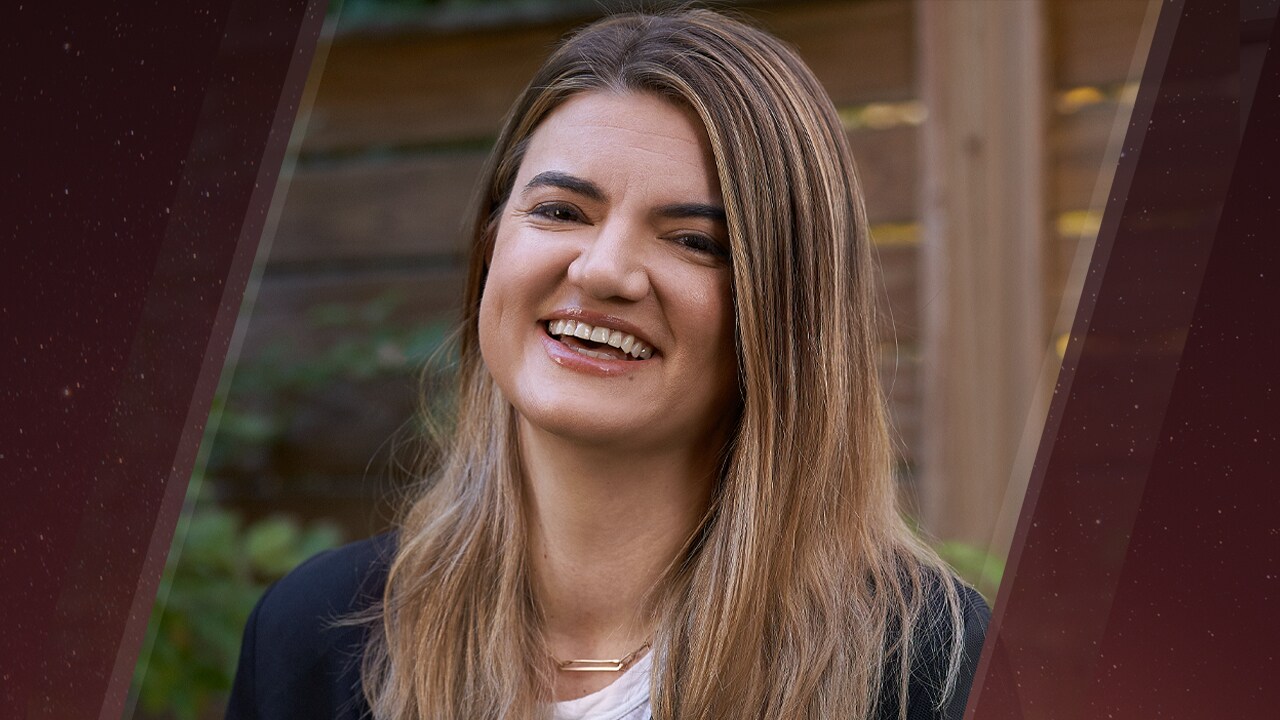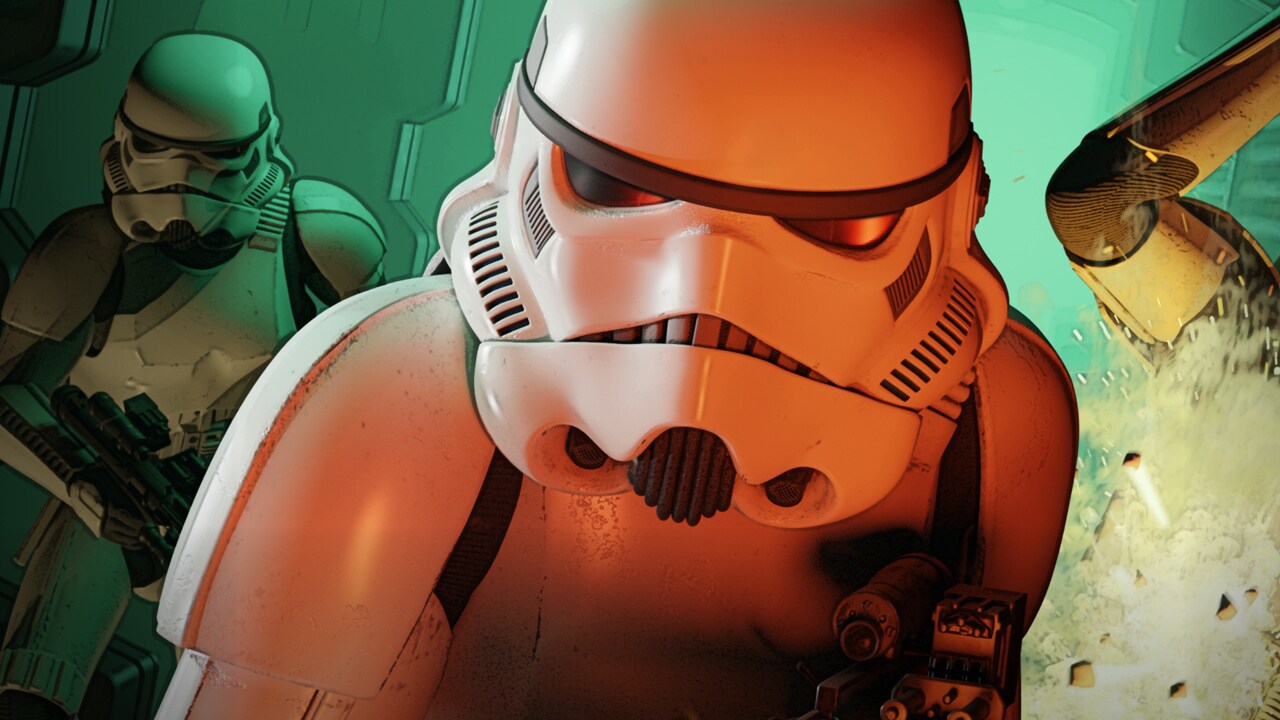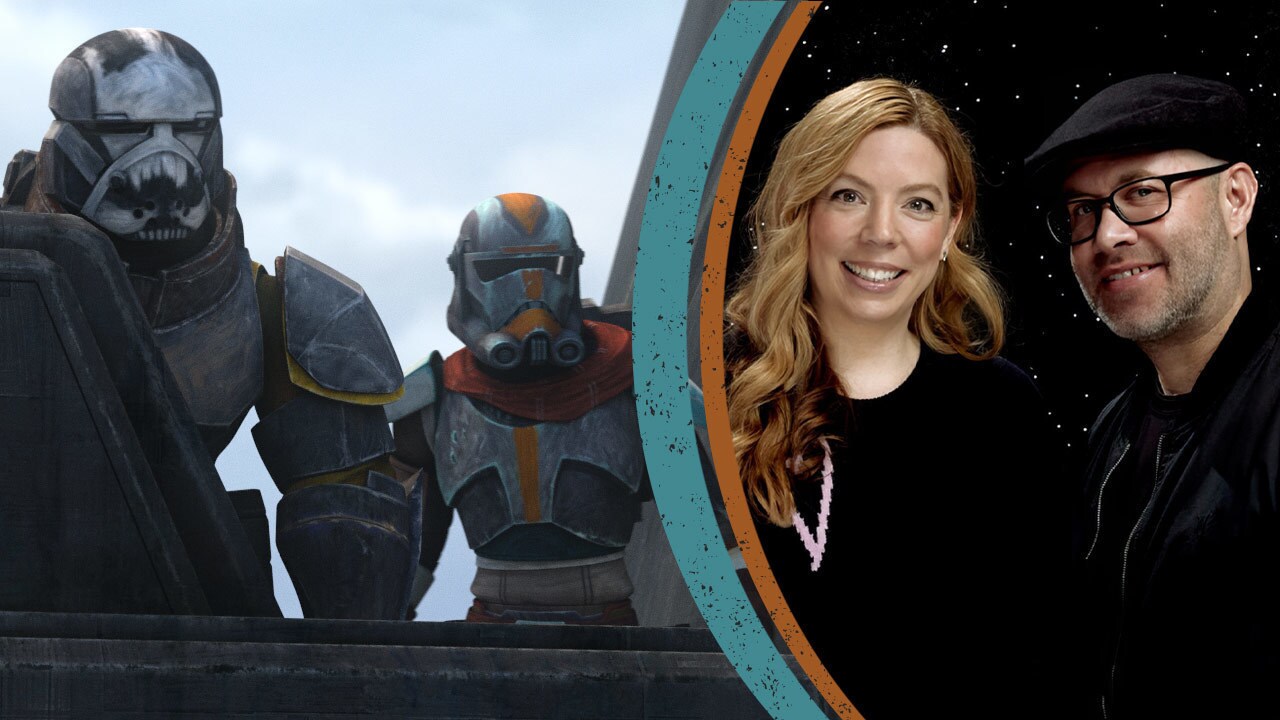Growing up as a child of immigrants, a career in entertainment seemed impossible for Kelly Marie Tran. But with the hardworking ethics of her parents to guide her, she attained the dream she always wanted. And in 2017, Kelly Marie Tran became a part of the galaxy far, far away when she made her debut as Rose Tico -- the first major Star Wars character played by an Asian American -- in Star Wars: The Last Jedi. Her breakthrough role came with its own successes and struggles, however, many of which she still grapples with today.
Tran agreed to have an open discussion with StarWars.com for Asian American Native Hawaiian Pacific Islander (AANHPI) Heritage Month about her journey. As an Asian American woman myself, we were able to sit down and have a conversation speaking about her career, discussing how her experiences were shaped by her family history, the surprising pitfalls of fame, and what she hopes for the future of Asian Americans in the entertainment industry.
StarWars.com: AANHPI is about celebrating our culture as Asian Americans, and family plays a huge part in Asian culture. Can you tell me a little bit about how you grew up and how it shaped who you are today?
Kelly Marie Tran: I was born in San Diego. My parents are both Vietnamese refugees and they're both boat people as well, so I very much grew up in a household that felt very Vietnamese despite living in America. My first language was Vietnamese, everything my mom cooked was Vietnamese.
I think I owe a lot to them because without that I don't know that I would've had the ability to not only pursue the things that I wanted to pursue but even have the wherewithal to even dream that I could. My parents grew up in a world where they didn't have a lot of the basic needs that I think a lot of people may take for granted, like my dad was homeless for 11 years in Vietnam. They grew up during a time where there was an active war for a lot of their childhood.
From my parents I learned the value of really working hard and I think that's because they were immigrants who came to America, and they didn't speak English and they had to learn a lot of things. From a very young age I recognized the ways in which, circumstantially, there are just people in the world who have to jump through more hoops or climb more mountains in order to get to a baseline of living a certain way.
My parents taught me so much just by seeing the way they existed in the world. They were absolutely relentless in the things that they did in order to make sure that my sisters and I grew up in a world where we were given more opportunities than my parents had at the same age.
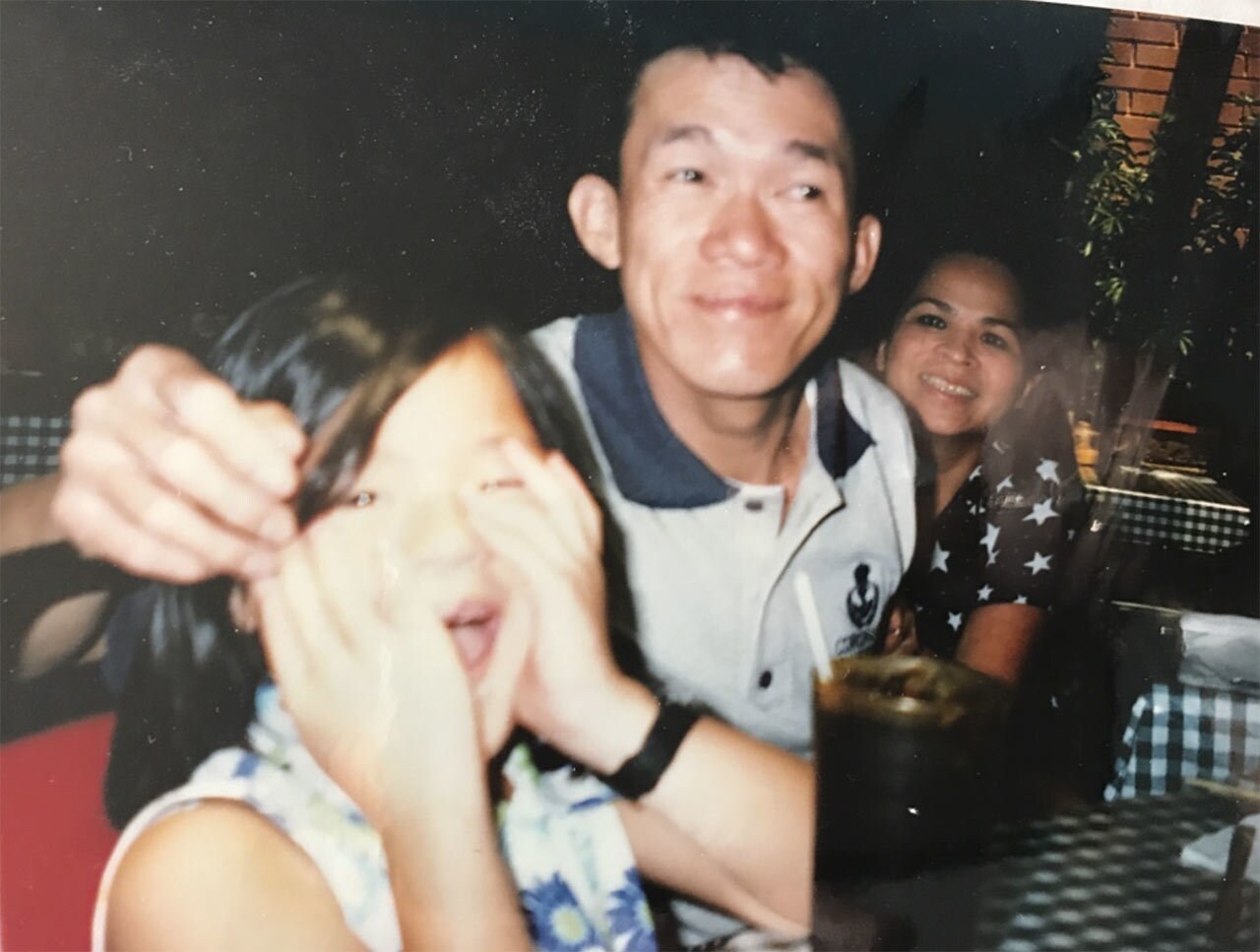
StarWars.com: Were they encouraging of your future in entertainment?
Kelly Marie Tran: No. [Laughs.] Like all relationships, it’s complicated. I would say that they didn't and looking at it now from my adult perspective, recognizing the environment with which they came from -- yeah, it totally makes sense that they wouldn't be supportive of something that feels totally impossible. Even for me, as I was pursuing it and even as I started getting some semblance of success, I still believed it was impossible. It’s something I think about a lot because I'm now in this environment where, you know, I'm working with people who didn't grow up the way that I did, and a lot of those people maybe grew up in an environment where there were artists always around. So people who are working in film, or not even in film -- visual arts or anything that was a creative profession -- which was just not my reality growing up at all.
My dad worked at Burger King and my mom worked in funerals, and for me to even get to a point where I was dreaming of pursuing something as insane as what I get to do now in my career was a lot. I had to jump through a lot of hoops and climb a lot of mountains to let myself believe in something. I am very grateful that I had a normal sort of adulthood and adolescence because I think that it's just given me the ability to hold onto a semblance of normalcy, and also recognize the things that I think are important to me. But at the same time, I find myself having to do a lot of mental work to get to a point where I not only am okay with the life I live now, but don't feel guilty about it.
My friends and I have been having this conversation a lot, like when you grow up in a culture of belief, which is not the culture that I grew up in -- if you just grew up around people who were like, “I want to be a musician” or “That's what I'm doing” -- your brain works differently. You at least have the concept of, “Oh, this is possible.” For me, the people around me were working in restaurants or working in service jobs, and so my reality was very different.
So the answer to the question is, my parents did not approve of it then and I think that when I became a working actor it was not just a sort of change in perspective for me, but I think it also changed my parents’ perspective in the most beautiful way. I think that's one of the best things that I got to experience -- my parents, their minds basically being blown and being like, “Oh, my God, wait, this is possible,” and I think that is pretty miraculous. I think that when you grew up in a different place with less opportunities where there wasn't always food put on the table, it's very cool to see the way that they are just happy and excited to see that there is this whole other universe of possibility that I have miraculously been able to tap into a little bit.
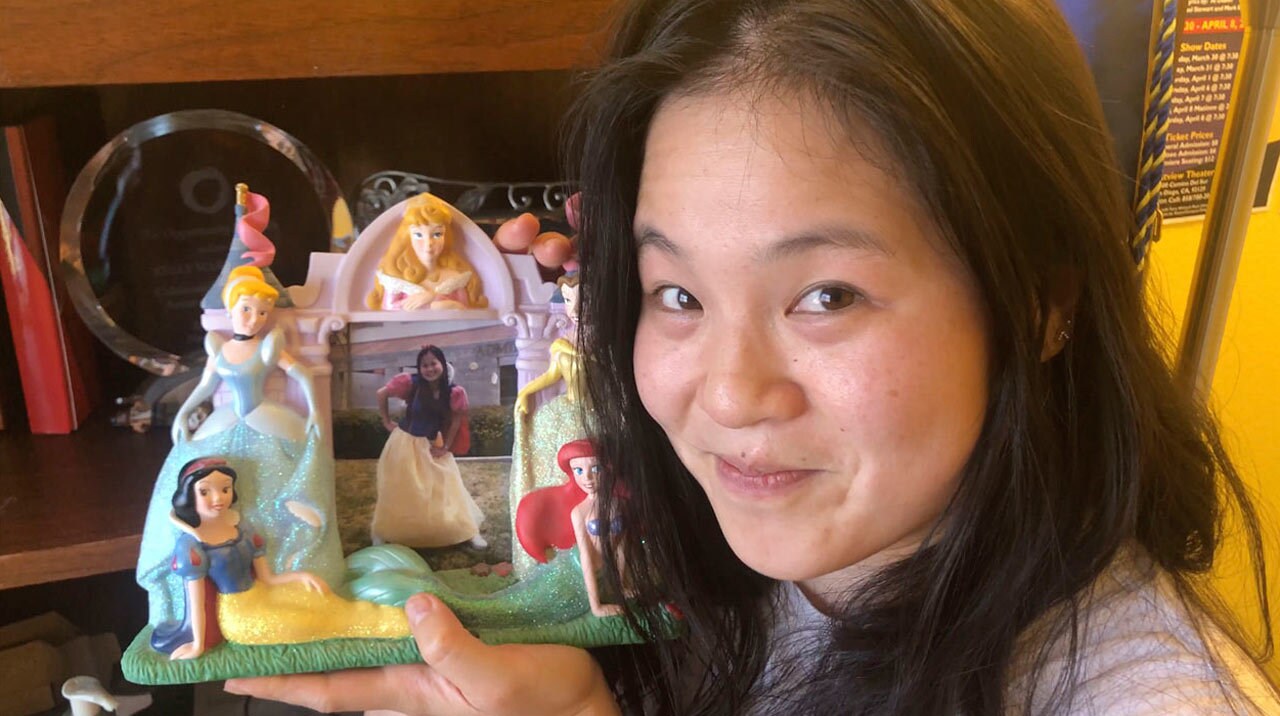
StarWars.com: Tell me what it was like being an Asian American actor in the early days of your career leading up to your big break.
Kelly Marie Tran: I feel like there's so many things that lead up to that moment, so it's really hard to define a journey by the one opportunity you were given, because I do believe that those opportunities are made over decades of time and not in that instant. I think I always knew that I wanted to pursue performing -- I think I was just scared.
I was working all these jobs and paying my way through school. One of the jobs was working at headshots studio. It was just crazy, because we talked about that culture of belief, and it was the first time I saw people coming in and out and getting their headshots done, talking about the auditions they were going to. And it was the first time in reality I saw people pursuing something that I think I always wanted to pursue but didn’t know how to go about it. That is the impact that the culture of belief will make on a person. It was the first time I knew from being a kid that I wanted to perform, and it wasn't until I graduated from college that I saw people actually pursuing it, and that was the first time I gave myself -- I don't even want to say permission -- it was the first time I asked myself the question, “Do I think I could do this too?”
So that's when I really started submitting myself to things, doing student films. And then I started submitting myself to agencies, and nobody wanted me. It took me years to get representation. The first agent I had was a commercial agent, and he was awesome. He was Asian, and honestly, he told me at the meeting, “You don't have a lot of experience but I want to take a chance on you because I know a lot of people don't take chances on Asian people,” and I was like, “Thank you.”
I took improv classes, and that's when I went through iO West, I went through UCB, I went through Second City, and comedy was really my first foray into LA acting classes. I was on an all-Asian female improv team -- and I still am to this day -- I was also doing College Humor sketches and working a day job, all while I was still pursuing acting.
I was auditioning for a lot of stuff and getting really close to [landing roles], mostly sitcoms, and at the time I remember telling myself, “Oh, Kelly, one day in a perfect world you'll be able to be the sidekick on a sitcom.” And that was the extent of where my dreams went and it makes me a little bit sad because it just is a symptom of where society was and where I was seeing people who looked like me.
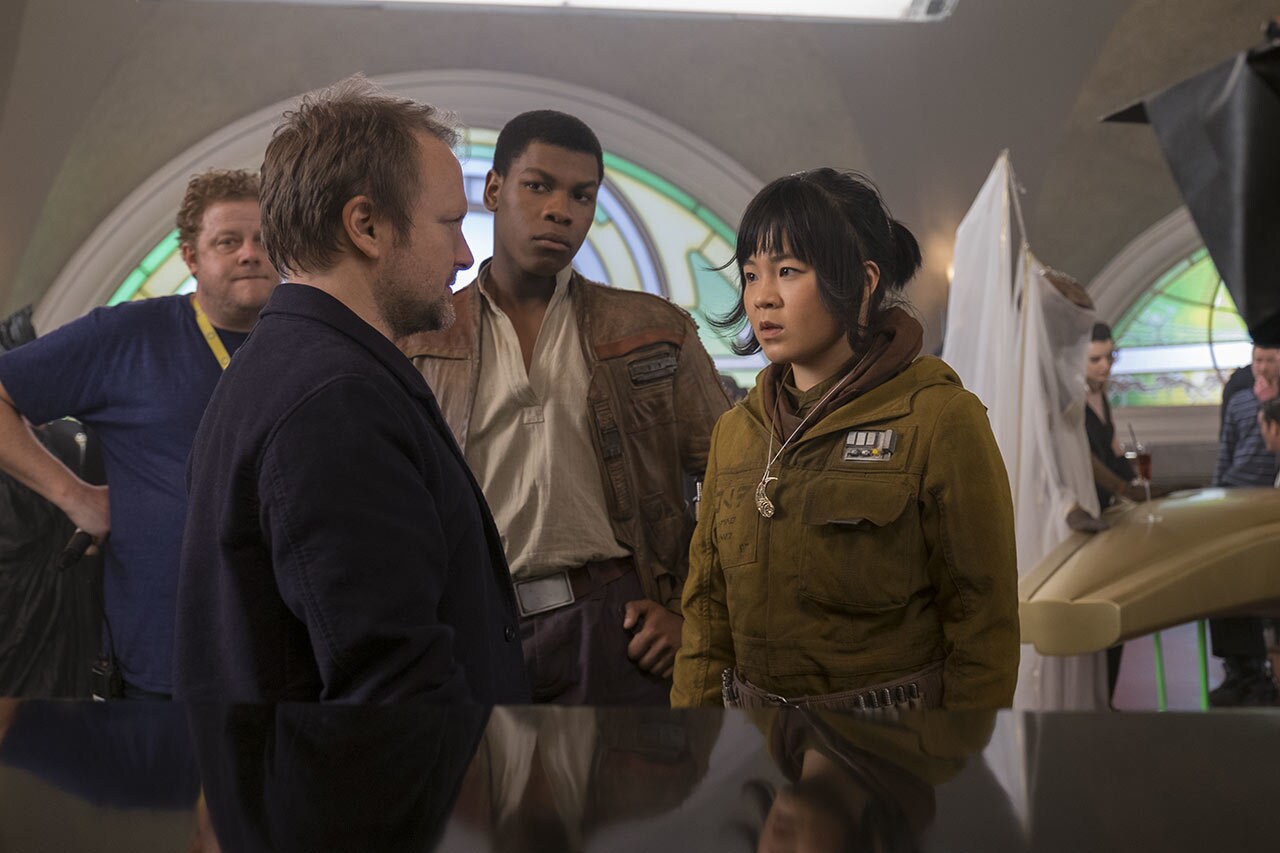
So my big break was in 2016 when I was offered the role of Rose in Episode VIII. As I was auditioning for Star Wars, it was a six-month process. I never thought to myself that I would actually get it because, again, I keep going back to this idea, this culture of belief, but like, I grew up watching those movies and they are all white. So I just was like, “Oh, I'm obviously not gonna get this, but one day I’ll tell my grandchildren how lucky I was to audition for this thing, and that was a cool thing that I did.”
StarWars.com: What you were saying about your agent was so interesting because when an Asian person who's representing you believes in you, all of a sudden the doors are more open, it's sort of that culture of seeing each other.
Kelly Marie Tran: I'm very lucky now because I have such an amazing support group. I have incredible friends who I've had since before I was a working actor, but I was able to cultivate this community of predominantly Asian women and other women of color who I’m able to talk about this with all the time.
I will say that, yes, I think what you brought up is true, it does become easier when you have a community behind you, or if you have someone who believes in you. I will say I still think that there are just things inside of me that I have to overcome -- and I don't know that it is just individual to me, but I can only speak to my own experience -- and I would say that because of the world that I grew up in, there a lot of things, instinctually, that I do or that I think that I have to unlearn, because I was so socialized to believe that certain people belong in certain spaces and other people don't.
And so the way that I think I reacted to a lot of the things happening to me was because of all of that. And I think that that is something I'm still trying to learn which, yes, is made easier by communities that we are able to cultivate of people who are going through the same stuff. But at the same time, I still find myself at tables where I’m the only person of color or only woman, or both. So it's hard, and it's something that I wish I didn't have to think about, but it's so intertwined with my identity and so intertwined with the way I interact with people. And it's so important for me to process and digest and to, hopefully, unlearn some of the lies that I was taught, in order to really come into myself and come to my power. I think that is an endless journey, I think I’m further on it now than I was maybe five years ago when I first got into this world. But, yeah, it's a continuous thing for me.
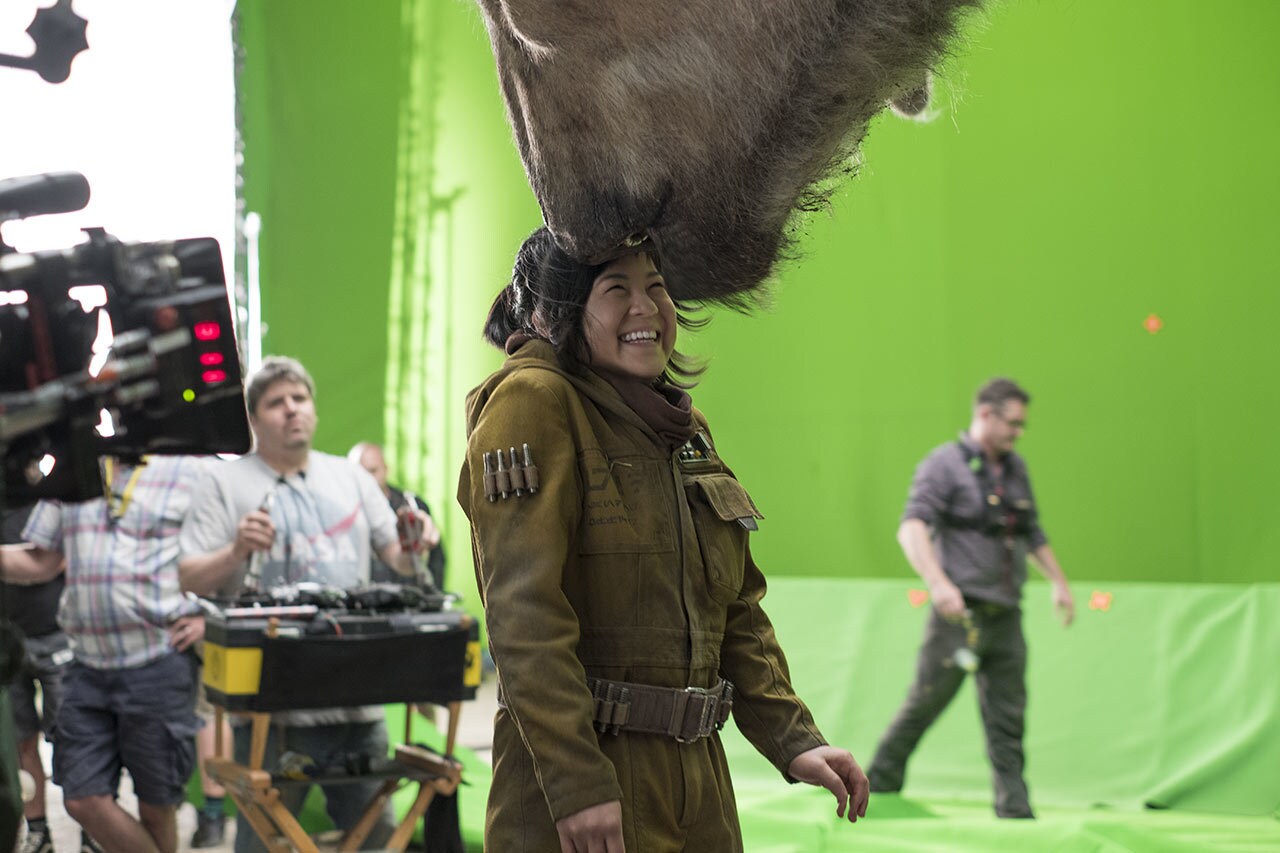
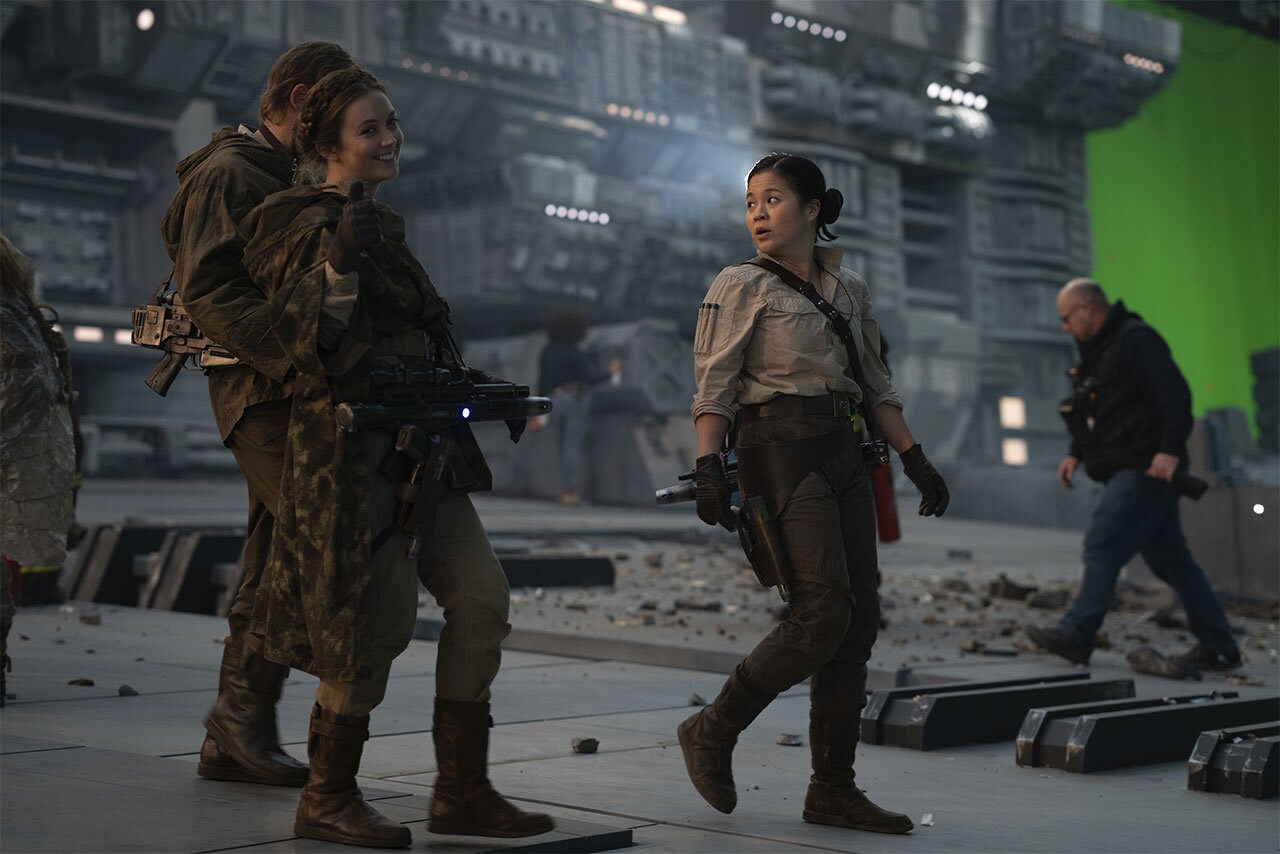
StarWars.com: I think that's a common struggle for Asian women in any field, but your big break was becoming the first Asian lead in a Star Wars film. So for the people coming after you and seeing that you're opening the doors for them, what was the impact that you felt knowing that you got that role that you thought was unattainable?
Kelly Marie Tran: It was twofold. The first emotion that I felt -- and I try to remind myself of this -- was just pure joy and pure ecstasy. It felt like being high, it was like, oh, my God.
It’s the same thing that I think happened for my parents where something in our brains just changed, when it was suddenly the idea that impossible things were possible and that there’s room for everyone. Like that just changes you as a human being.
Then on the other side of that, there's this heaviness. That feeling like, “I don't wanna do this wrong.” I've never seen anyone like me in this position before and I put so much pressure on myself to do it, quote “right,” whatever that meant. And I think it was a little bit of a disservice to myself because it's unfair. When I think about people who don't have the sort of burden of representation, they just get to have fun and do whatever they want, whereas every role that I read I feel like I have to think about all of these things because I don't want to make a movie that stereotypes -- and this is sad because it shouldn't feel like such a heavy decision every time. But it does, very much for me, and I think that has a lot to do with the way I grew up, that has a lot to do with the types of roles that I have been very fortunate to be a part of in the very beginning. But it very much was like me being a normal person, never thinking about what I look like, never thinking about people judging me for looking or dressing certain way, to then being so hyper aware of being seen.
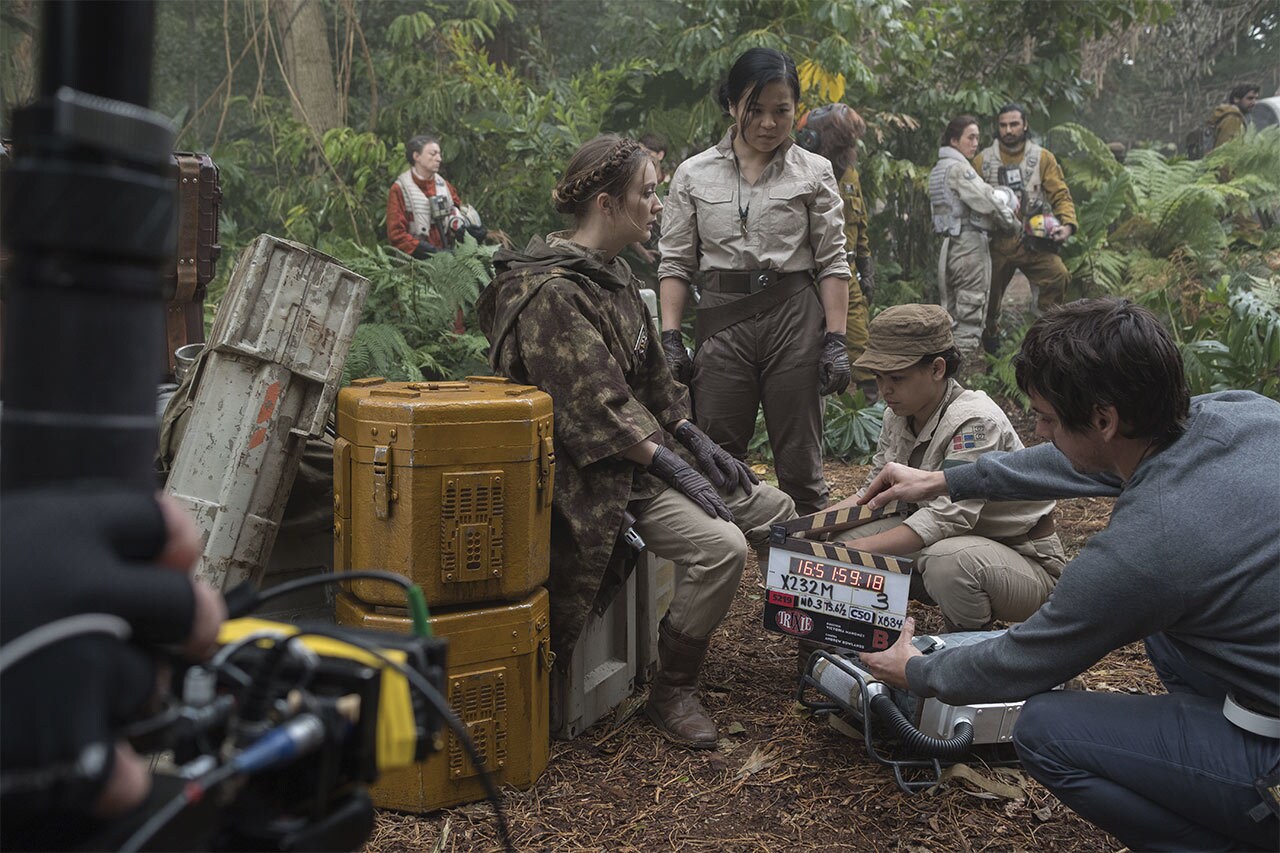
What it felt like to me was two opposite ends of the spectrum, unbridled joy and ecstasy and feeling so proud and just wanting to bring all my friends and everyone who looks like me, and everyone who's ever felt like they didn't belong somewhere, to be able to make that jump and have that sort of brain shift and be like, “Oh, my God, impossible things are possible” -- that was the best part of it. And on the other end it was just vitriol. I think it needs to be acknowledged and I don't really know what to say about it other than every experience in life has good and bad things that come with it. So I think all of that stuff really affected me, and still maybe affects just what I think when I think about representation.
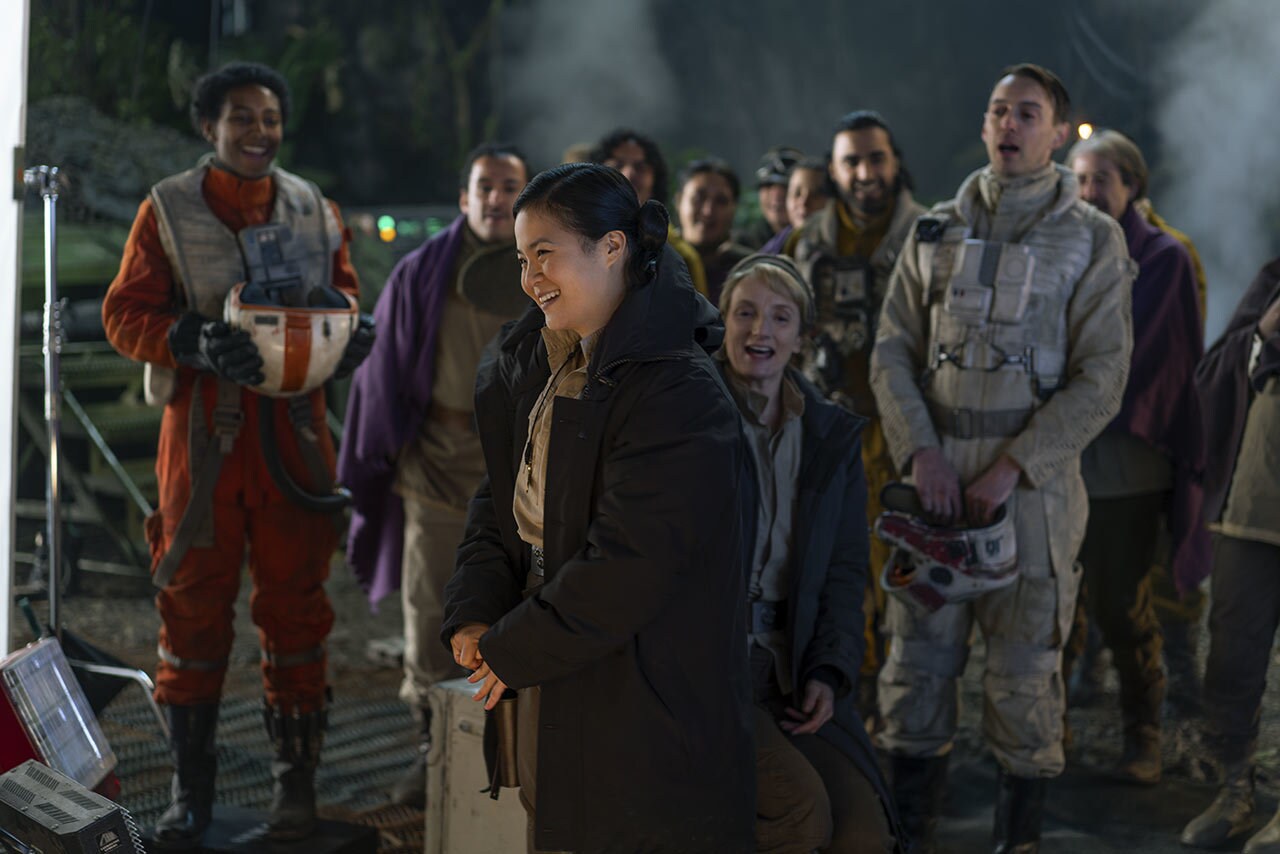
StarWars.com: I often tell people that my favorite part about working with Star Wars is that space is diverse, there are so many cultural influences that make up the Star Wars galaxy. Does cultural experience intentionally come through in the roles you play, specifically the part of Rose?
Kelly Marie Tran: I think my job as an actor is to always personalize the characters I’m playing, even if I’m not purposefully being like, “Oh, let me imbue my culture.” Someone told me, “Culture is like being a fish in water; you don’t even realize you’re in water.” It’s so a part of who you are, that I think the roles that I’ve played have unintentionally been affected by the culture that I grew up in.
Rose felt very close to me only because her family was from a war-torn planet where her parents were ripped from the place they lived, and that is what my parents went through. So yes, culturally, it felt very much on the nose, almost. And the scene that her sister has before you even meet Rose -- the idea that people are sacrificing themselves for a greater cause -- I think is also a very cultural idea in my household, at least. I saw my parents sacrificing their own well-being and own individual desires in order to provide for the family. So yeah, it was absolutely influenced by culture.
StarWars.com: Are there any Asian American stories that you haven’t seen that you hope to tell?
Kelly Marie Tran: Yes! I have a bunch of projects that I’m developing that are Asian American stories. I am always behind the scenes fighting for stories and fighting for the things that as a child I didn’t see in the world.
I think the hope is that it’s normal to imagine yourself doing impossible things no matter who you are or what you look like. I want everyone in the world to believe that they can do anything and that it’s in their grasp somehow, even if they grew up in a household like mine where you’re not around people who work in creative fields, where your family is very much in a working-class environment. Our society would be better if we all were just given the opportunity to dream, to believe, and to pursue the things that make our heart sing.
Jenn Fujikawa is a lifestyle and food writer. Follow her on Twitter at @justjenn and check her Instagram @justjennrecipes and blog www.justjennrecipes.com for even more Star Wars food photos.
Site tags: #StarWarsBlog




